- Home
- F. Scott Fitzgerald
I'd Die For You Page 4
I'd Die For You Read online
Page 4
I saw her look at me wonderingly and then turn slowly and walk away. In a moment she was lost to view beyond the curve of the low stone wall under the magnolia trees.
IV
It was four days—four sweltering anxious days—before I could bring enough order out of the chaos to arrange any sort of business conference. The first meeting between Cosgrove Harden and his uncle was the most tremendous nervous strain of my life. I sat for an hour on the slippery edge of a rickety chair preparing to spring forward every time I saw young Cosgrove’s muscles tighten under his coat sleeve. I would make an instinctive start and each time slip helplessly from the chair and land in a sitting position on the floor.
Dr. Harden finally terminated the interview by rising and going upstairs. I managed to pack young Harden off to his room by dint of threats and promises and wrung out of him a vow of twenty-four hours silence.
I used all my available cash in bribing the two old servants. They must say nothing, I assured them. Mr. Cosgrove Harden had just escaped from Sing Sing. I quaked as I said this but there were so many lies in the air that one more or less made little difference.
If it hadn’t been for Miss Thalia I would have given up the first day and gone back to New York to await the crash. But she was in such a state of utter and beatific happiness that she was willing to agree to anything. I proposed to her that if they would marry and live in the west under an assumed name for ten years I would support them liberally. She jumped for joy. I seized the opportunity and with glowing colors painted a love-bungalow in California with mild weather all the year around and Cosgrove coming up the path to supper and romantic old missions nearby and Cosgrove coming up the path to supper and the golden gate in a June twilight and Cosgrove and so forth.
As I talked she gave little cries of joy and was all for leaving immediately. It was she who persuaded Cosgrove on the fourth day to join us in conference in the living-room. I left word with the maid that we were on no account to be disturbed and we sat down to thresh the whole thing out.
Our points of view were radically divergent.
Young Harden’s was very similar to the Red Queen’s in Alice in Wonderland. Some one had blundered and some one had to suffer for it right away. There had been enough fake dead men in this family and there was going to be a real one if some one didn’t look out!
Dr. Harden’s point of view was that it was all an awful mess and he didn’t know what to do about it, God knew, and he wished he were dead.
Thalia’s point of view was that she had looked up California in a guide-book and the climate was adorable and Cosgrove coming up the path to supper.
My point of view was that there was no knot so tight that there wasn’t a way out of the labyrinth—and a lot more mixed metaphors that only got everybody more confused than they were in the beginning.
Cosgrove Harden insisted that we get four copies of The Aristocracy of the Spirit World and talk it over. His uncle said that the sight of a book would make him sick to his stomach. Thalia’s suggestion was that we should all go to California and settle the question out there.
I got four books and distributed them. Dr. Harden shut his eyes and groaned. Thalia opened hers to the last page and began drawing heavenly bungalows with a young wife standing in the doorway of each. Young Harden hunted furiously for page 226.
“Here we are!” he cried, “Just opposite the picture of ‘Cosgrove Harden the day before he sailed showing the small mole above his left eye’ we see the following: ‘This mole had always worried Cosgrove. He had a feeling that bodies should be perfect and that this was an imperfection that should in the natural order be washed away.’ Hm! I have no mole.”
Dr. Harden agreed.
“Possibly it was an imperfection in the negative,” he suggested.
“Great Scott! If the negative had failed to photograph my left leg you’d probably have me yearning all through the book for a left leg—and have it joined to me in chapter twenty-nine.”
“Look here!” I broke in. “Can’t we reach some compromise. No one knows that you are in town. Can’t we—”
Young Harden scowled at me fiercely.
“I haven’t started yet. I haven’t mentioned the alienation of Thalia’s affections.”
“Alienation!” protested Dr. Harden, “Why, I have paid her no attention. She detests me. She—”
Cosgrove laughed bitterly.
“You flatter yourself. Do you think I was jealous of your old grey whiskers? I’m talking about her affections being alienated by these descriptions of me.”
Thalia bent forward earnestly.
“My affections never wavered, Cosgrove—never.”
“Come Thalia,” said Cosgrove somewhat grumpily, “they must have been slightly alienated. How about page 223. Could you love a man who wore floating underwear. Who was—who was filmy.”
“I was grieved, Cosgrove; that is I would have been grieved if I’d believed it, but I didn’t.”
“No alienation?” His tone expressed disappointment.
“None, Cosgrove.”
“Well,” said Cosgrove resentfully, “I’m ruined politically anyway—I mean if I decided to go into politics I can never be president. I’m not even a democratic ghost—I’m a spiritual snob.”
Dr. Harden’s face was sunk in his hands in an attitude of profound dejection.
I interrupted desperately, talking so loudly that Cosgrove was compelled to stop and listen.
“I will guarantee you ten thousand a year if you will go away for ten years!”
Thalia clapped her hands and Cosgrove seeing her out of the corner of his eye began for the first time to show a faint interest.
“How about after the ten years are up?”
“Oh,” I said hopefully, “Dr. Harden may be—may be—”
“Speak up,” said the Doctor gloomily. “I may be dead. I sincerely trust so.”
“—so you can come back under your own name,” I continued callously. “Meanwhile we’ll agree to publish no new edition of the book.”
“Hm. Suppose he’s not dead in ten years?” demanded Cosgrove suspiciously.
“Oh, I’ll die,” the Doctor reassured him quickly. “That needn’t worry you.”
“How do you know you’ll die?”
“How does one know anyone will die. It’s just human nature.”
Cosgrove regarded him sourly.
“Humor is out of place in this discussion. If you’ll make an honest agreement to die, with no mental reservations—”
The Doctor nodded gloomily.
“I might as well. With the money I have left I’ll starve to death in that time.”
“That would be satisfactory. And when you do, for heaven’s sake arrange to have yourself buried. Don’t just lie around the house here dead and expect me to come back and do all the work.”
At this the Doctor seemed somewhat bitter and then Thalia who had been silent for some time suddenly raised her head.
“Do you hear anything outside?” she asked curiously.
I had heard something—that is I had subconsciously perceived a murmur—a murmur growing and mingling with the sound of many footsteps.
“I do,” I remarked, “odd—”
There was a sudden interruption—the murmur outside swelled to the proportions of a chant, the door burst open and a wild-eyed servant rushed in.
“Dr. Harden! Dr. Harden,” she cried in terror, “there’s a mob, maybe a million people, comin’ along the road and up toward the house. They’ll be on the porch in a—”
An increase in the noise showed that they already were. I sprang to my feet.
“Hide your nephew!” I shouted to Dr. Harden.
His beard trembling, his watery eyes wide, Dr. Harden grasped Cosgrove feebly by the elbow.
“What is it?” he faltered.
“I don’t know. Get him upstairs to the attic right away—put leaves over him, stick him behind an heirloom!”
With that I was go
ne, leaving the three of them in puzzled panic. Through the hall I rushed and out the front door onto the screen-porch. I was none too soon.
The screen-porch was full of men, young men in checked suits and slouch hats, old men in derbys and frayed cuffs, crowding and jostling, each one beckoning and calling to me above the crowd. Their one distinguishing mark was a pencil in the right hand and a notebook in the left—a notebook open—waiting, virginally yet ominously portentous.
Behind them on the lawn was a larger crowd—butchers and bakers in their aprons, fat women with folded arms, thin women holding up dirty children that they might better see, shouting boys, barking dogs, horrible little girls who jumped up and down shouting and clapping their hands. Behind these in a sort of outer ring stood the old men of the village, toothless, musty-eyed, their mouths open, their grey beards tickling the tops of their canes. Over behind them the setting sun, blood red and horrible, played on three hundred twisting shoulders.
After the burst of noise that succeeded my appearance a silence fell—a deep hush pregnant with significance—and out of this hush came a dozen voices from the men with notebooks in front of me.
“Jenkins of the Toledo Blade!”
“Harlan of the Cincinnati News!”
“M’Gruder of the Dayton Times!”
“Cory of the Zanesville Republican!”
“Jordan of the Cleveland Plain Dealer!”
“Carmichael of the Columbus News!”
“Martin of the Lima Herald!”
“Ryan of the Akron World!”
It was weird, uncanny—like some map of Ohio gone mad with the miles refusing to square and the towns jumping about from county to county. My brain quivered.
Then again the hush fell. I noticed a commotion in the middle of the crowd, a sort of wave or eddy floating down the center like a thin line of wind blowing through a wheatfield.
“What do you want!” I cried hollowly.
Like one voice came the response from half a thousand throats.
“Where is Cosgrove Harden!”
It was out! The reporters swarmed about me, pleading, threatening, demanding.
“—kept it pretty close, didn’t you—almost didn’t leak out—pays to pay bills—won’t he give an interview—send us the old faker—”
Then that strange eddy in the field of people suddenly reached the front and died out. A tall young man with yellow hair and stilt-like legs emerged dynamically from the crowd and dozens of willing hands propelled him forward toward me. Up to the porch he came—up the steps—
“Who are you?” I shouted.
“Name’s Elbert Wilkins,” he gasped, “I’m the fella that told.”
He paused and his chest swelled. It was his great moment. He was the immortal messenger of the Gods.
“I recognized him the day he came! You see—you see—” We all swayed forward eagerly,—“I got his I.O.U. for three dollars and eighty cents he lost to me at draw-poker, and I want my money!”
***
I am a publisher. I publish any sort of book. I am looking for a book that will sell five hundred thousand copies. This is the season for novels with a psychic turn. If possible I would prefer something by a fervent materialist about a wealthy clubman and a dark apachess—or something about love. Love is a sure thing—it takes a living man to love.
Zelda Fitzgerald, self-portrait as ballerina in the moon, 1927.
“Nightmare” is, as Harold Ober’s accompanying note indicates, “[v]ery improbable of course but well told.” It is a fantasy set in a mental institution, a story of family connections (there are several brothers who are institutionalized together, and a father-daughter team of doctors), as well as having a boy-gets-girl plot.
By 1932 Fitzgerald knew all too well what even the most exclusive, and progressive, private mental institutions were like. Zelda had first been hospitalized in Europe in 1930, and from February until June 1932 was a patient at the Phipps Clinic in Baltimore. The question of who is, and who is not, “crazy” is at the heart of “Nightmare”—how sanity is defined, and how much depends upon who is doing the defining. Surely it is wish fulfillment, too, for Fitzgerald to imagine the salvation of someone sane from duplicity and disaster.
“Nightmare” was rejected by College Humor, Cosmopolitan, Redbook, and the Saturday Evening Post, all magazines that had regularly and eagerly published Fitzgerald’s work. The very rejections of this story make it interesting today; in 1932, this was not what readers expected under the byline “F. Scott Fitzgerald,” and therefore not what editors wanted. Times were bleak enough, and he was “meant” to be the writer one wanted to read for moonlight and money. Part of the plot turns on wealth, to be sure (the brothers have money, and the doctor in charge of the hospital wants it), but the descriptions of patients and their care did not appeal to editors wanting flappers and fun from Fitzgerald. He wrote sadly, but resignedly, to Ober in April 1932, “Nightmare will never, never sell for money, in any times.” In June 1936, Fitzgerald said that he still had the story with him, but had “stripped” it “and used almost all of the best lines from it in Tender Is the Night.” The typescript of the story, with changes in pencil by its author, remained in family hands until it was sold at Sotheby’s in New York on June 15, 2012.
Nightmare
(Fantasy in Black)
May I say in the beginning that I don’t believe this ever happened: it is all too grotesque and I have been unable to find the exact locality where it took place or to identify the people by their real names. But here is the story as I heard it.
In a pleasant section of New Hampshire, on a hill that is white in the winter and green in summer, four or five houses stand near each other. On a spring afternoon all the doors and windows of the largest and most elaborate house are thrown open toward the tennis courts; often the sound of a violin and piano drifts out upon the summer air. There is movement in the reception room downstairs as if a house-party were taking place. Walking the length of the terrace you might see through the French windows people playing in the billiard room, or other people listening to the spirited strains of Suppé’s Light Cavalry, or further on a group with embroidery in hand—all of them on a certain June day are intent on some pastime, save for a tall girl in white who stands in the doorway looking out toward the New Hampshire mountains with an expression of rapturous discontent.
There was conversation in the salons—some of it in a merry mood. A tall, sheep-like gentleman, standing in a group of three, remarked in a guarded voice:
“Now there’s Mrs. Miller playing bridge. If I could just slip up behind her with a good pair of scissors and snip off half a dozen of those mousy curls they’d be fine souvenirs and she’d be much improved.”
The other two men were not amused at his fancy. One of them made a contemptuous remark in bad Spanish and regarded the speaker sullenly—the third paid no attention but wheeled sharply as the group was joined by a fourth.
“Well, well, Mr. Woods—and Mr. Woods—and Mr. Woods,” said the new arrival jovially, “What gorgeous weather.”
The three Mr. Woods—they were brothers, aged perhaps thirty-five, forty and forty-five—agreed with him. He was a dark stout man with flashing brown eyes and black hair and a hawk-like face that somehow blended with his forceful, soft-flowing voice. He was a dandy and rather more sure of himself than anyone in the room. His name was Vincintelli and his birthplace Milan.
“Did you enjoy the music that Mrs. Sachs and Mr. Hepburn have been giving us?” Vincintelli asked.
“I was just saying—” began the eldest Woods brother, but broke off.
“You were just saying what?” asked Vincintelli, quietly yet sharply.
“Nothing,” said Mr. Wallace Woods.
Vincintelli looked around and his eyes lingered for a moment on the young woman in the doorway. Instinctively he felt dissatisfied with the physical attitude she had assumed—somehow standing in the doorway like that betrayed the fact that her mood was centrifugal
rather than centripetal—she was drawn toward the June afternoon, the down-rolling, out-rolling land, adventurous as an ocean without horizons. Something stabbed at his heart for his own mood was opposite—for him she made this place the stable center of the world.
He made a parallelogram of the rooms, rather more rapidly and nervously than was his wont, speaking a greeting here, dropping a joke or a joviality there, congratulating the amateur musicians, and then, passing close to Kay Shafer who did not turn to look at him, he arrived again in the vicinity of the Woods brothers who still stood together in a group.
“You should mix around more,” he chided them, “You shouldn’t be such an exclusive triumvirate.”
“Yo no quiero,” said the second Woods brother, rapidly and contemptuously.
“As you know I do not speak Spanish well,” said Vincintelli calmly, “we could communicate so much better in English.”
“Yo non hablo Inglese,” asserted Mr. Woods.
“On the contrary you speak excellent English, Mr. Woods. You are an American born and bred, like your brothers. We know that, don’t we?” He laughed, confidently, firmly, and took out his watch. “It’s two-thirty. We must all go to our schedules.” As he turned briskly it seemed to be a sort of signal, for the people in the room, singly or in pairs, bestirred themselves and slowly drifted from the room.
“Train leaving,” chanted the youngest Mr. Woods, “New York, New Haven and Hartford—for Pelham, Greenwich, South Norwalk, Norwalk!” His voice suddenly grew louder until it resounded through the room, “West Point! Larchmont! NEW HAVEN! AND POINTS BEYOND!”
A nurse skipped quickly to his side.
“Now Mr. Woods.” Her trained voice indicated disapproval without exasperation, “we mustn’t make quite so much noise. We’re going to the carpentry shop where—”
“Train leaving at Gate 12—” His voice had sunk to a plaintive but still sonorous cadence as he walked obediently with her to the door. The other brothers followed, each with a nurse. So also, with a sigh and a last glance outdoors, did Miss Shafer. She stopped, however, as a small short-legged man with a shield-shaped body and beaver whiskers hurried into the room.

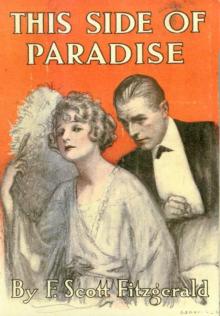 This Side of Paradise
This Side of Paradise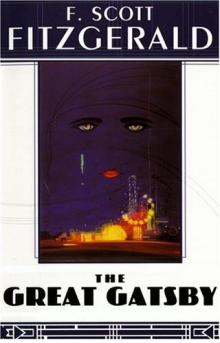 The Great Gatsby
The Great Gatsby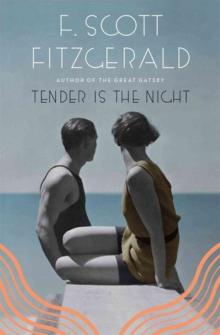 Tender Is the Night
Tender Is the Night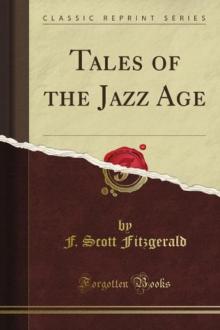 Tales of the Jazz Age (Classic Reprint)
Tales of the Jazz Age (Classic Reprint)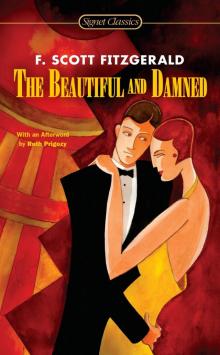 The Beautiful and Damned
The Beautiful and Damned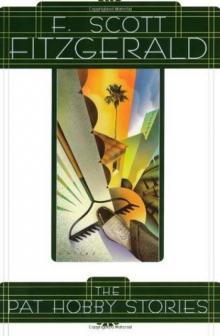 The Pat Hobby Stories
The Pat Hobby Stories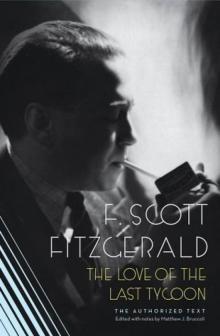 The Love of the Last Tycoon
The Love of the Last Tycoon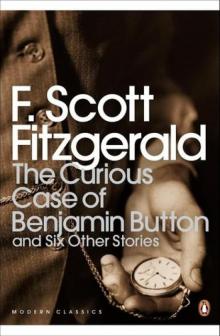 The Curious Case of Benjamin Button and Six Other Stories
The Curious Case of Benjamin Button and Six Other Stories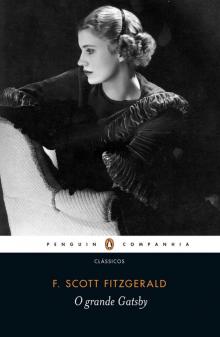 O Grande Gatsby (Penguin)
O Grande Gatsby (Penguin)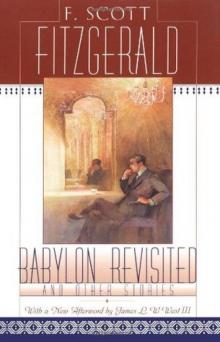 Babylon Revisited and Other Stories
Babylon Revisited and Other Stories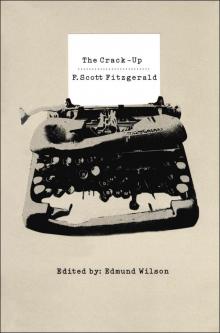 The Crack-Up
The Crack-Up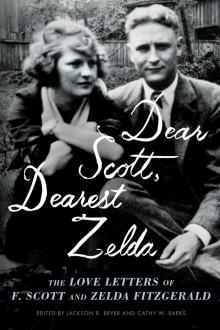 Dear Scott, Dearest Zelda
Dear Scott, Dearest Zelda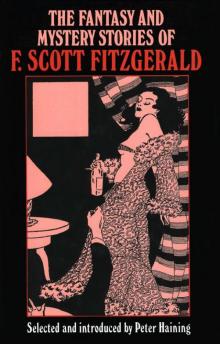 The Fantasy and Mystery Stories of F Scott Fitzgerald
The Fantasy and Mystery Stories of F Scott Fitzgerald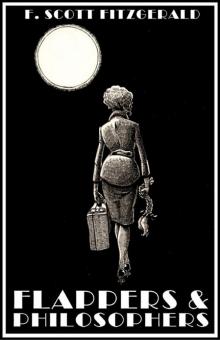 Flappers and Philosophers
Flappers and Philosophers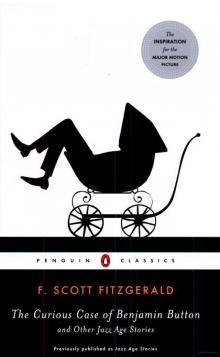 The Curious Case of Benjamin Button and Other Jazz Age Stories (Penguin Classics)
The Curious Case of Benjamin Button and Other Jazz Age Stories (Penguin Classics)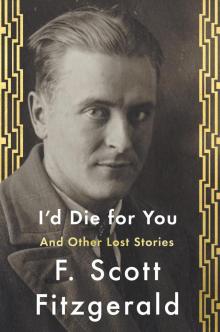 I'd Die For You
I'd Die For You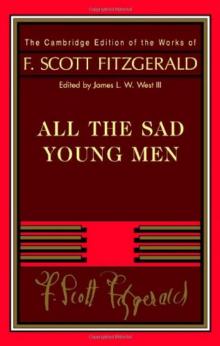 All the Sad Young Men
All the Sad Young Men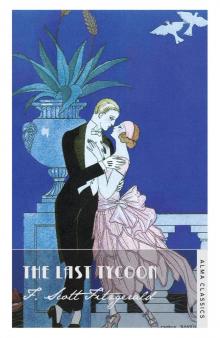 The Last Tycoon
The Last Tycoon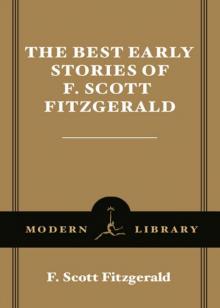 The Best Early Stories of F. Scott Fitzgerald
The Best Early Stories of F. Scott Fitzgerald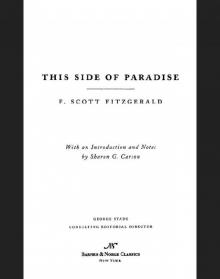 This Side of Paradise (Barnes & Noble Classics Series)
This Side of Paradise (Barnes & Noble Classics Series)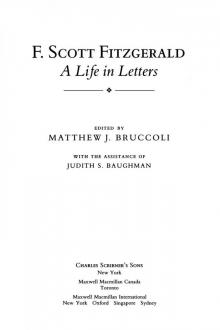 A Life in Letters
A Life in Letters Beautiful and Damned (Barnes & Noble Classics Series)
Beautiful and Damned (Barnes & Noble Classics Series)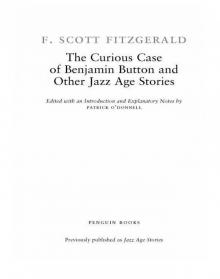 The Curious Case of Benjamin Button and Other Jazz Age Stories
The Curious Case of Benjamin Button and Other Jazz Age Stories Tales of the Jazz Age
Tales of the Jazz Age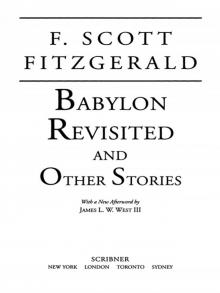 Babylon Revisited
Babylon Revisited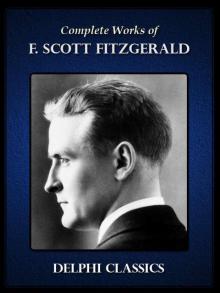 Complete Works of F. Scott Fitzgerald UK (Illustrated)
Complete Works of F. Scott Fitzgerald UK (Illustrated)